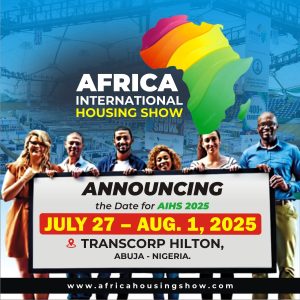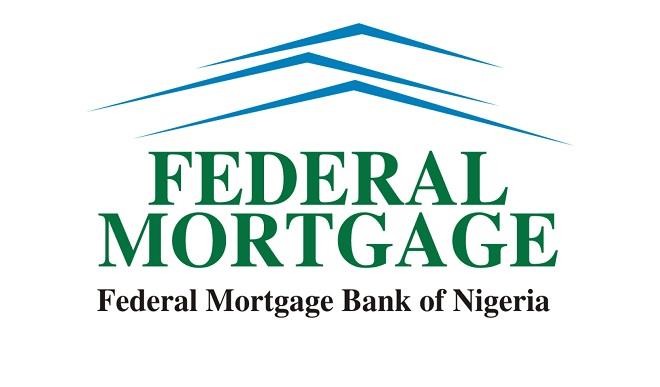Nigeria’s housing sector has faced significant challenges. With a housing deficit of over 20 million units, many Nigerians struggle to access affordable homes. For years, inefficiencies, a lack of transparency, and bureaucratic hurdles have kept many from homeownership.
But now, the Federal Mortgage Bank of Nigeria (FMBN) is introducing a transformative solution—the National Mortgage Registry (NMR). This initiative promises to reshape Nigeria’s mortgage system and create a more inclusive, efficient, and transparent market for homebuyers.
The Importance of the Housing Sector
The housing sector is a critical part of any economy. It’s often considered an indicator of economic growth or decline. Unfortunately, Nigeria’s mortgage penetration is very low—less than 1% of GDP, much lower than in other emerging markets. One of the key factors behind this is the absence of a centralized, verifiable mortgage system. Without it, fraud, multiple claims on properties, and delayed mortgage approvals have discouraged both local and foreign investment.
Challenges Homebuyers Face
Prospective homeowners in Nigeria have long dealt with lengthy approval processes, bureaucratic delays, and inconsistent lending practices. These inefficiencies have made it difficult for many Nigerians to access affordable housing finance. The housing deficit has only worsened, leaving millions unable to realize their dream of homeownership.
The National Mortgage Registry: A Game-Changer
The NMR is a digital platform that will centralize and record all mortgage transactions in real-time. This digital registry will provide a transparent, accessible system for tracking mortgage statuses, verifying property titles, and preventing fraud. It will be a tool for financial institutions, government agencies, and homebuyers, all of whom will benefit from a more efficient and reliable system.
Streamlining the Mortgage Process
One of the primary goals of the NMR is to speed up the mortgage process. The current system is slow and filled with red tape, which leads to delays in approvals and disbursements. The NMR will automate key processes, cut down paperwork, and give banks and mortgage institutions access to real-time data. As a result, loan approvals will be faster, administrative costs for lenders will be reduced, and mortgage interest rates may lower for borrowers.

Tackling Fraud and Legal Disputes
The NMR’s transparency is also a huge advantage in combating fraud and legal disputes. By creating a centralized, verifiable record of all mortgage transactions, the registry will prevent fraudulent property claims and reduce legal challenges. This will build trust between developers, investors, and homebuyers, making the mortgage market more secure and attractive to lenders.
Inclusivity for the Informal Sector
Over 60% of Nigeria’s workforce is employed in the informal sector, and many of these workers face difficulties in proving their income stability. This has prevented them from accessing mortgages. The NMR will address this issue by enabling alternative credit scoring methods and creating specialized mortgage products for informal workers, such as artisans, traders, and small business owners. This initiative aims to make homeownership accessible to more Nigerians across all income levels.
The Economic Impact: Boosting Investment
The NMR will also help attract foreign direct investment (FDI) to Nigeria’s housing sector. A transparent and efficient mortgage system will make the country’s real estate market more attractive to international investors. By aligning Nigeria’s mortgage system with global standards, the NMR will encourage public-private partnerships (PPPs) and foster new mortgage finance providers, leading to increased competition and innovation in the sector.
Preparing for the Future: Technological Innovations
The NMR is just the beginning of a broader digital transformation agenda at FMBN. By digitizing mortgage records, the registry sets the stage for future innovations, including the use of blockchain technology for enhanced security and AI-driven mortgage processing for faster approvals. There are also plans to create mobile-accessible mortgage verification systems, allowing users to check property details in real-time.
FMBN’s Larger Digital Agenda
The NMR is part of a larger push by FMBN to modernize Nigeria’s housing finance system. Other reforms include the deployment of a Core Banking Application to automate mortgage processing and improve service delivery, as well as the introduction of virtual property inspections, reducing the need for physical site visits. FMBN is also collaborating with fintech companies to integrate smart lending solutions into the mortgage system.
Current Progress and Timeline
As of March 2025, the NMR is in the final stages of testing. The system is expected to be fully deployed later this year. Next steps include finalizing security protocols, integrating with banking and land registry platforms, and conducting training programs for financial institutions and real estate developers. A nationwide public awareness campaign will also be launched to educate Nigerians on how to access and use the registry.
Conclusion: A Bright Future for Nigeria’s Housing Sector
The National Mortgage Registry (NMR) represents a major shift in Nigeria’s housing finance sector. By improving transparency, streamlining the mortgage process, and making homeownership more accessible, the NMR has the potential to accelerate housing development and economic growth. With the full implementation of this initiative, millions of Nigerians will soon have access to affordable mortgages, paving the way for a more inclusive housing market.
FMBN’s leadership in this transformation signals a promising future for Nigeria’s housing sector. As the NMR comes to life, it will not only address the housing deficit but also attract investment, create jobs, and ultimately improve the quality of life for many Nigerians.



